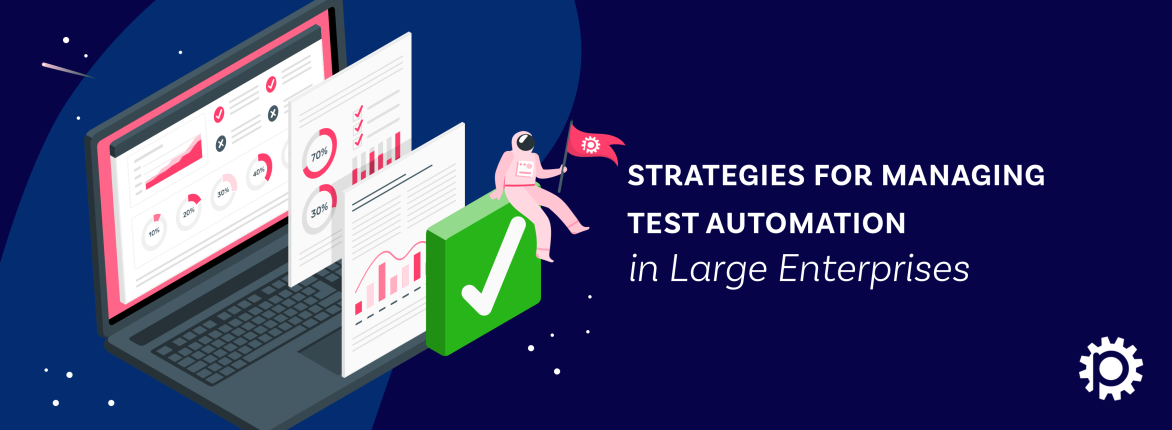In recent years, particularly after the COVID-19 pandemic, remote and distributed teams have become more common across all industries. This shift has brought significant changes to how we approach software development and testing.
One critical area that demands attention is test automation. Adapting test automation strategies to suit remote and distributed teams can ensure consistent quality, efficiency, and collaboration — and ultimately, the most effective product for the end user possible.
In this blog post, we’re exploring key strategies for effective test automation in such environments, as well as how Provar Automation can support these efforts.
Implement Continuous Integration and Continuous Deployment (CI/CD)
CI/CD pipelines are essential for automating the integration and deployment processes. For remote teams, CI/CD ensures that code changes are automatically tested and deployed, minimizing the risk of integration issues. Integrating automated tests into CI/CD pipelines helps catch bugs early in the development cycle, enhancing the overall quality of the software.
By adopting CI/CD practices, remote teams can ensure that their codebase remains stable and that new features are delivered quickly and reliably. Automated testing within CI/CD pipelines provides instant feedback to developers, enabling them to address issues promptly.
Foster Effective Communication and Collaboration
Effective communication is the backbone of any successful remote team. For test automation, it’s vital to establish clear communication channels and protocols. Regular virtual meetings, stand-ups, and retrospectives help keep everyone aligned and informed about the project’s progress and challenges.
Collaboration tools such as Slack, Microsoft Teams, or Jira can facilitate seamless communication. These tools can integrate with test automation frameworks to provide real-time notifications and updates on test results. A good test automation tool will also ensure effective cross-organization communication, as it will promote transparency across the entire testing pipeline in one easily accessible location. Ensuring that all team members have access to these tools and understand how to use them is key to maintaining transparency and collaboration.
Standardize Test Automation Frameworks and Practices
Standardization of test automation frameworks and practices ensures consistency and reduces complexity. When working with a remote team, it’s crucial to agree on a common set of tools, libraries, and coding standards. This uniformity helps new team members onboard quickly and allows for easier maintenance of test scripts.
Creating comprehensive documentation and guidelines for the test automation framework is equally important. This documentation should cover setup instructions, coding standards, best practices, and troubleshooting tips. Having a well-documented framework reduces the learning curve and ensures that all team members are following the same procedures. A good test automation vendor will help your team through the onboarding process and will ensure your entire team is on the same page.
Invest in Robust Test Reporting and Analytics
Robust reporting and analytics are crucial for understanding the effectiveness of test automation efforts. Remote teams need comprehensive and accessible reports to make informed decisions. Automated test reports should provide insights into test coverage, pass/fail rates, execution times, and identified defects.
Advanced analytics can help identify patterns and trends in test results, enabling teams to pinpoint areas that require improvement. Integrating these reports into a centralized dashboard accessible to all team members ensures transparency and aids in data-driven decision-making.
Look for a test automation tool that offers robust reporting — some solutions, such as Provar Manager, even expand upon these offerings by providing a centralized hub for all testing data that can elevate the reporting capabilities already in place.
Ensure Security and Compliance
Security and compliance are critical considerations for remote and distributed teams. Test automation tools and environments must adhere to security best practices to protect sensitive data and intellectual property. Implementing secure access controls, encryption, and regular security audits are essential steps.
Compliance with industry standards and regulations should also be factored into the test automation strategy. Ensure that your test automation solution is equipped to handle sensitive data, and look for one that helps you protect this data for the long term.
How Provar Automation Can Help
Provar Automation offers a comprehensive solution tailored for all teams, including those that are remote and distributed. This powerful testing platform provides a centralized environment for managing and executing tests, ensuring seamless collaboration across different locations. Its integration with CI/CD pipelines facilitates continuous testing and delivery, maintaining the stability and quality of the software.
Provar Automation’s user-friendly interface and extensive documentation make it easy for teams to standardize their test automation practices. The platform’s robust reporting and analytics features provide valuable insights, helping teams make data-driven decisions. Additionally, Provar Automation makes it easier to ensure compliance with security standards, safeguarding your data and intellectual property.
If you’re looking for an adaptable test automation solution that will grow and evolve with you, regardless of where your team is located, look no further. Get in touch with us today!
Want more information on how Provar’s solutions for testing and end-to-end quality can help your team? Connect with an expert today!







